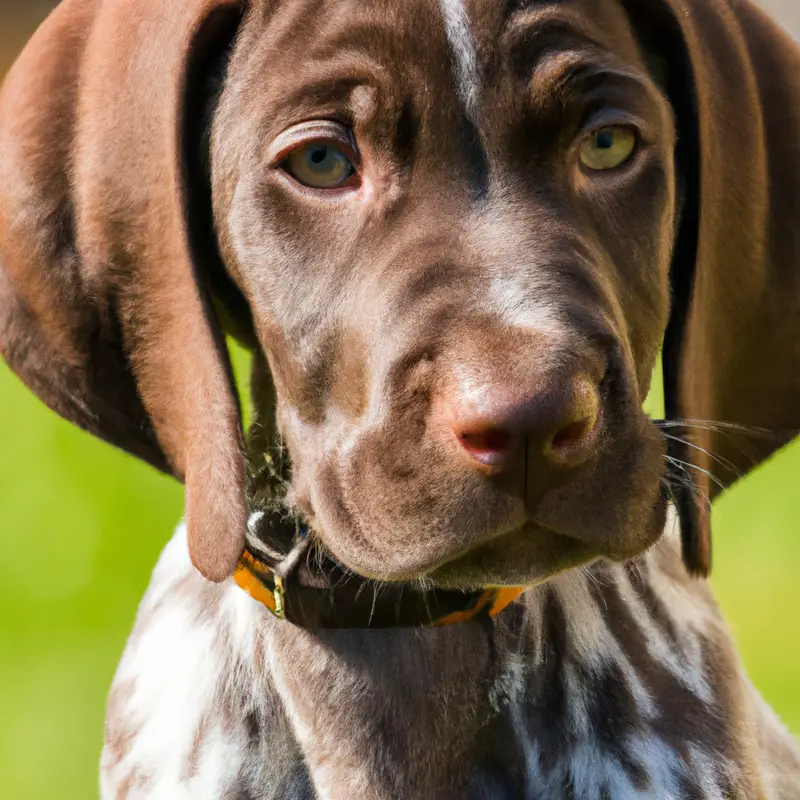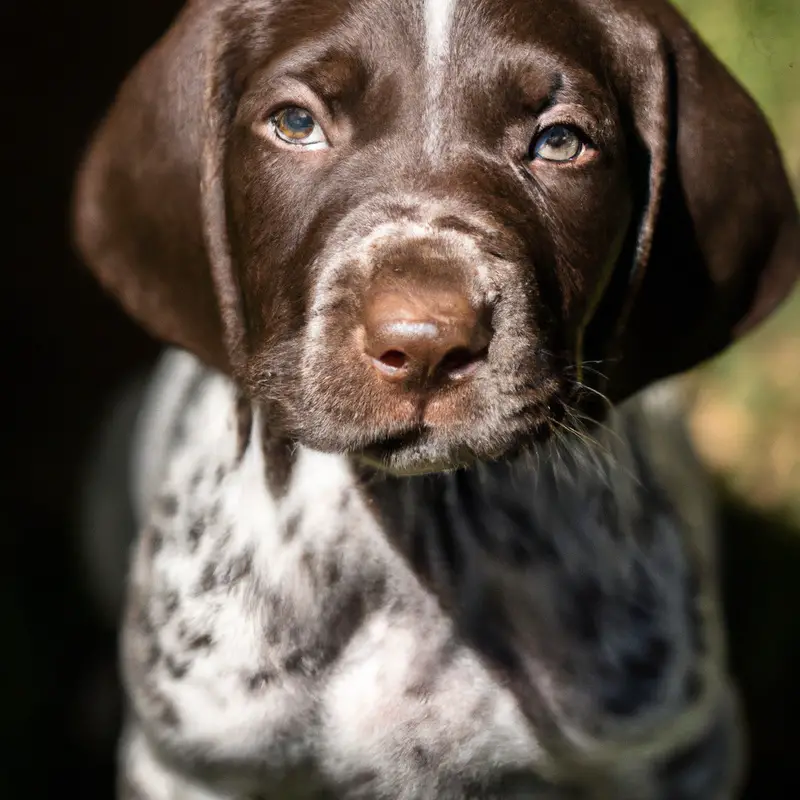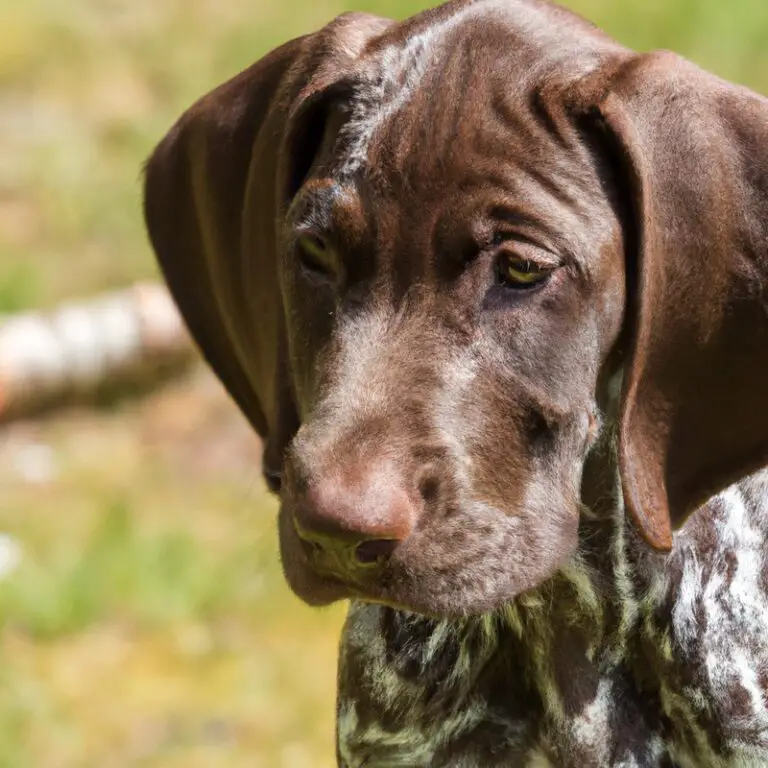How Can I Prevent My German Shorthaired Pointer From Developing Skin Allergies?
Key Takeaways:
- Regular grooming and proper hygiene practices can help prevent skin allergies in German Shorthaired Pointers.
- Providing a balanced and nutritious diet can help strengthen their immune system and reduce the risk of allergies.
- Avoiding known allergens and potential irritants can reduce the chances of skin allergies in German Shorthaired Pointers.
- Regular veterinary check-ups and prompt treatment for any skin issues can prevent allergies from worsening.
Are you worried about your beloved German Shorthaired Pointer developing skin allergies? Trust me, you’re not alone.
As a proud owner of a German Shorthaired Pointer myself, I understand the frustration and concern that come with this common issue.
But fear not! In this blog article, I’ll share valuable insights and expert tips on preventing skin allergies in these beautiful dogs. From understanding the causes and symptoms to exploring proper grooming techniques and lifestyle modifications, we’ll cover it all.
So, grab a cup of coffee, sit back, and get ready to keep your furry friend’s skin healthy and allergy-free!
| Cause of Skin Allergies | Tips to Prevent Skin Allergies |
| 1. Food Allergies | – Consult your veterinarian for a hypoallergenic diet. – Avoid potential allergens such as grains, dairy, and poultry. |
| 2. Environmental Allergies | – Keep your dog’s environment clean and free from dust mites and pollen. – Limit exposure to grass, molds, and certain cleaning products. |
| 3. Fleas and Parasites | – Use effective flea prevention measures such as medications and regular grooming. – Keep your dog’s bedding and living areas clean and regularly wash their bedding. |
| 4. Seasonal Allergies | – Keep your dog indoors during peak allergy seasons. – Wipe their paws and body after outdoor activities to remove potential allergens. |
| 5. Heredity | – Choose a reputable breeder with a focus on breeding healthy dogs free from skin allergies. – Discuss potential genetic risks with the breeder and ensure proper health testing of the parents. |
Understanding Skin Allergies in German Shorthaired Pointers
Common Causes of Skin Allergies in German Shorthaired Pointers
Skin allergies in German Shorthaired Pointers can be caused by several factors. One common cause is food allergies, which can occur due to a sensitivity or intolerance to certain ingredients in their diet.
Environmental allergens, such as pollen, dust mites, or mold, can also trigger allergies in these dogs.
Additionally, contact allergies from certain substances like chemicals or fabrics can lead to skin irritation. Flea bites and tick infestations can also cause allergic reactions in German Shorthaired Pointers.
It’s important to identify the specific cause of your dog’s allergy to effectively manage and prevent future flare-ups.

Recognizing Symptoms of Skin Allergies in German Shorthaired Pointers
Recognizing symptoms of skin allergies in German Shorthaired Pointers is essential for their well-being. Look out for signs like excessive scratching, biting, or licking of the skin.
Redness, inflammation, and hot spots are also indicators of allergies.
Pay attention to hair loss, dry and flaky skin, or the presence of rashes and bumps. If your German Shorthaired Pointer develops recurrent ear infections or has watery, itchy eyes, it could be due to allergies.
Keep an eye out for these symptoms to ensure early detection and proper treatment for your furry friend.
Maintaining a Healthy Diet for Skin Health
Choosing the right food for your German Shorthaired Pointer
Choosing the right food for your German Shorthaired Pointer is important for maintaining their overall health and preventing skin allergies. Here are a few things to keep in mind when selecting their food:
- Look for high-quality ingredients: Opt for dog foods that contain quality proteins like chicken or fish as the main ingredient. Avoid artificial additives, fillers, and by-products.
- Consider their unique needs: German Shorthaired Pointers are active dogs that require a balanced diet with the right amount of nutrients. Look for dog foods specifically formulated for active breeds or high-energy dogs.
- Grain-free options: Some German Shorthaired Pointers may have sensitivities or allergies to grains. If your pup exhibits signs of allergies, consider switching to a grain-free diet to see if it helps.
- Consult with your veterinarian: Your vet knows your dog’s health history and can recommend suitable food options tailored to their needs. They may suggest specific brands or types of food to address any allergies or dietary restrictions your dog may have.

Nutritional supplements for skin allergies prevention
Nutritional supplements can play a helpful role in preventing skin allergies in dogs like German Shorthaired Pointers. One important supplement to consider is omega-3 fatty acids.
These healthy fats help support a strong immune system and reduce inflammation, which can help prevent allergic reactions.
Another supplement to consider is probiotics, which promote a healthy gut and can enhance your dog’s immune system, reducing the risk of allergies. Additionally, antioxidants like vitamin E and vitamin C can help protect your dog’s skin from damage and strengthen their immune system.
Incorporating these supplements into your dog’s diet may help prevent skin allergies and promote overall skin health.
Proper Grooming and Bathing Techniques
Regular brushing and removing allergens
Regular brushing and removing allergens are essential steps to preventing skin allergies in your German Shorthaired Pointer. First and foremost, make sure to brush your dog’s coat on a regular basis.
This helps to remove any loose fur, dirt, and allergens that may be trapped in the fur.
Use a brush specifically designed for your dog’s coat type to effectively remove these particles. Additionally, it’s important to be proactive in removing allergens from your dog’s environment.
Vacuum your home regularly to reduce the presence of dust mites and other irritants.
Wash your dog’s bedding weekly to keep it clean and free from allergens. By regularly brushing your dog and removing allergens from their surroundings, you can significantly reduce the risk of skin allergies and keep your German Shorthaired Pointer healthy and happy.
Bathing frequency and suitable products for sensitive skin
Bathing frequency plays a key role in preventing skin allergies in German Shorthaired Pointers. Regular baths help remove allergens and keep their skin clean and healthy.
So, how often should you bathe your pup?
Well, it depends on their individual needs. Generally, bathing once every 4-6 weeks should suffice.
However, if your dog is prone to allergies or has sensitive skin, you may need to bathe them more frequently.
Just make sure not to overdo it as excessive bathing can strip their skin of its natural oils. Now, let’s talk about suitable products for sensitive skin.
Look for hypoallergenic shampoos specially formulated for dogs with allergies.
These shampoos are free from harsh chemicals and fragrances that can irritate their skin. Opting for natural or organic products can also be beneficial.
Before using any new product, it’s always a good idea to do a patch test to ensure it doesn’t cause any adverse reactions.
Effective Allergy Prevention Strategies
Allergen avoidance in the environment
Allergen avoidance in the environment is key to preventing skin allergies in your German Shorthaired Pointer. Here are some important steps you can take:
- Keep your home clean: Regularly vacuum and dust to reduce the presence of allergens like dust mites and pollen. Use a high-efficiency particulate air (HEPA filter in your vacuum cleaner and air purifiers to trap and remove allergens from the air.
- Minimize exposure to outdoor allergens: Limit your dog’s time outside during high pollen seasons. Clean their paws after walks to remove allergens they may have picked up.
- Choose hypoallergenic bedding and toys: Opt for hypoallergenic materials for your dog’s bed and toys to minimize contact with potential allergens.
- Avoid harsh chemicals: Some cleaning products and pesticides can irritate your dog’s skin. Use natural, pet-friendly alternatives whenever possible.
- Ensure good ventilation: Proper ventilation helps reduce moisture and prevents the growth of mold and mildew, which can trigger allergies. Open windows regularly and use fans or dehumidifiers if needed.

Limiting exposure to common triggers
Limiting exposure to common triggers is essential in preventing skin allergies in German Shorthaired Pointers. So, what are these common triggers?
Well, they can include things like pollen, dust mites, certain foods, and even certain materials like wool or synthetic fabrics.
Here are a few strategies you can use to minimize your dog’s exposure to these triggers:
- Keep the house clean and dust-free by regularly vacuuming and washing bedding in hot water.
- Pay attention to your dog’s diet and avoid potential allergens like grains, artificial preservatives, and certain proteins. Consult with a veterinarian to find the best diet for your furry friend.
- Be mindful of your dog’s surroundings when venturing outdoors. Avoid areas with high pollen counts or allergenic plants, and consider wiping your dog’s paws after walks to remove potential irritants.
- Opt for hypoallergenic bedding, toys, and grooming products made specifically for dogs with sensitivities.
Regular Veterinary Care and Allergy Testing
Importance of annual check-ups
Annual check-ups for your German Shorthaired Pointer are really important. They help ensure your dog’s overall health and well-being.
During these check-ups, the veterinarian can detect any potential issues early on, including skin allergies.
They will examine your dog’s skin, fur, and overall condition to identify any signs of allergies or other health concerns. Regular check-ups also provide an opportunity for you to discuss any changes or concerns you might have regarding your dog’s skin and allergies.
So, make sure to schedule those annual check-ups to keep your dog healthy and happy!
Identifying specific allergens through testing
Identifying specific allergens through testing is an important step in preventing skin allergies in your German Shorthaired Pointer. Allergy testing helps you pinpoint the exact substances that trigger allergic reactions in your dog.
This information is crucial in implementing the right preventive measures and treatment options.
Through either blood tests or skin tests, your veterinarian can identify specific allergens such as pollen, dust mites, or certain foods. This allows you to create an environment that minimizes exposure to these allergens, keeping your furry friend healthy and comfortable.
Managing Skin Allergies with Medications and Treatments
Over-the-counter remedies for mild allergies
Okay, let’s talk about over-the-counter remedies for mild allergies. These can be helpful if your German Shorthaired Pointer is experiencing minor skin allergies.
Here are a few options you can consider:
- Antihistamines: These medications can help reduce itching and inflammation caused by allergies. Just make sure to choose a suitable antihistamine for dogs, as some human medications can be dangerous for them. Always follow the recommended dosage and consult your vet before giving any medication to your furry friend.
- Topical creams or ointments: There are various creams and ointments available specifically designed to soothe itchy skin. Look for products that contain ingredients like hydrocortisone, which can provide relief from inflammation and itching. Again, it’s important to consult your vet before using any products on your dog.
- Natural remedies: Some natural remedies, such as oatmeal baths or herbal sprays, may provide relief for mild allergies. These products can help soothe and moisturize your dog’s skin. However, it’s best to consult with your vet before trying any natural remedies to ensure they are safe and appropriate for your dog.
Prescription medications for severe cases
Prescription medications can be crucial for managing severe cases of skin allergies in German Shorthaired Pointers. These medications are usually prescribed by a veterinarian and should only be given under their guidance.
Some commonly prescribed medications include:
- Antihistamines: These drugs help to reduce itching and inflammation caused by allergies. They work by blocking the effects of histamine, which is released during an allergic reaction.
- Steroids: Corticosteroids are often prescribed to provide relief from severe itching and inflammation. They are powerful anti-inflammatory drugs that can help control allergic reactions effectively.
- Immunosuppressive drugs: In some cases, when other treatments have been ineffective, immunosuppressive medications may be prescribed. These drugs work by suppressing the immune system’s response to allergens, reducing symptoms and the risk of severe reactions.
- Topical creams or ointments: Prescription-strength topical treatments, such as corticosteroid creams or ointments, may be recommended for localized skin allergies. These medications can help to reduce itching, inflammation, and promote healing.
Natural Remedies and Homecare Tips
Soothing remedies for irritated skin
Soothing your dog’s irritated skin is important to keep them comfortable and happy. Here are some simple remedies you can try:
- Oatmeal baths: Oatmeal has a calming effect on the skin. Mix finely ground oatmeal with warm water and gently massage it onto your dog’s skin. Leave it on for a few minutes before rinsing thoroughly.
- Aloe vera gel: Aloe vera has soothing properties that can provide relief to your dog’s irritated skin. Apply a small amount of pure aloe vera gel to the affected area and gently massage it in. Make sure the gel is free of any additives or fragrances.
- Coconut oil: Coconut oil is known for its moisturizing and antibacterial properties. Apply a small amount of organic, unrefined coconut oil to your dog’s skin and gently massage it in. It can help alleviate itching and promote healing.
- Chamomile tea rinse: Brew a strong chamomile tea and let it cool. Use it as a rinse after bathing your dog. Chamomile has anti-inflammatory properties that can help soothe irritated skin.
The role of essential oils in skin allergy prevention
Essential oils can play a helpful role in preventing skin allergies in your German Shorthaired Pointer. One popular essential oil for this purpose is lavender oil.
Lavender oil has anti-inflammatory properties that can soothe irritated skin and reduce redness.
Another useful essential oil is chamomile oil, which has calming effects and can help alleviate itching. Tea tree oil is known for its antifungal and antibacterial properties, making it effective in preventing infections that can worsen allergies.
However, it’s important to dilute essential oils properly and avoid using them directly on your dog’s skin.
Always consult with your vet before using essential oils on your pet.
Lifestyle Changes and Environmental Modifications
Indoor environmental control for allergy prevention
Indoor environmental control is a key factor in preventing skin allergies in your German Shorthaired Pointer. Here are some tips to help you create a healthier environment for your furry friend:
- Vacuum regularly: Dust, pollen, and other allergens can accumulate in carpets and rugs, triggering allergies. Vacuuming frequently helps to remove these allergens from your home.
- Use hypoallergenic bedding: Opt for hypoallergenic bedding materials for your dog’s sleeping area. These materials are less likely to trigger allergies and are easier to clean.
- Keep humidity levels in check: High levels of humidity can promote the growth of mold and dust mites, which can cause allergies. Use a dehumidifier to maintain optimal humidity levels in your home.
- Opt for easy-to-clean furnishings: Choose furniture and curtains that are easy to clean and don’t trap allergens. Leather or vinyl furniture is a good option, as it can be wiped clean easily.
- Regularly wash pet bedding: Your dog’s bedding can harbor allergens such as pollen or dust mites. Make sure to wash it regularly with hypoallergenic detergent to keep it clean and allergen-free.
Tips for reducing stress and anxiety in German Shorthaired Pointers
To help reduce stress and anxiety in your German Shorthaired Pointer, here are some tips to consider:
- Provide plenty of exercise: Regular physical activity is essential for keeping your GSP mentally and physically stimulated. Make sure to engage in daily walks, playtime, and other activities that allow them to burn off energy.
- Establish a routine: Dogs thrive on structure and predictability. By establishing a consistent daily schedule for feeding, exercise, and playtime, you can help reduce their anxiety levels.
- Create a safe and calm environment: Make sure your home is a stress-free space for your GSP. Provide a designated area where they can retreat to when they need some downtime. Consider using calming music or diffusing soothing scents to create a peaceful atmosphere.
- Socialize your GSP: Introduce your German Shorthaired Pointer to new people, animals, and environments early on. Proper socialization can help them become more relaxed and comfortable in various situations, reducing their overall anxiety.
- Use positive reinforcement training: Train your GSP using positive reinforcement techniques, rewarding them for good behavior. This approach helps build their confidence and fosters a positive relationship between you and your dog.
Addressing Skin Allergies through Behavior Modification
Managing scratching and chewing behavior
Managing scratching and chewing behavior in dogs is essential for preventing skin allergies and promoting overall skin health. Here are some tips to help you handle this behavior:
- Keep your dog’s nails trimmed to prevent excessive scratching. Long nails can irritate the skin and cause discomfort for your pet.
- Provide appropriate outlets for your dog’s energy through regular exercise. A tired dog is less likely to engage in excessive scratching and chewing.
- Identify and address any underlying medical conditions that may be causing the behavior. Skin allergies, dry skin, or infections can contribute to excessive itching and chewing.
- Use positive reinforcement training techniques to redirect your dog’s attention away from scratching and chewing. Reward your dog when they engage in alternative, acceptable behaviors.
- Provide mental stimulation and enrichment to keep your dog mentally engaged. Boredom can lead to destructive behaviors, including excessive scratching and chewing.
- Consider using deterrents such as bitter sprays or physical barriers to discourage your dog from scratching and chewing in specific areas.
The importance of mental stimulation to prevent allergies
Mental stimulation plays a vital role in preventing allergies. Engaging your German Shorthaired Pointer’s mind can help distract them from obsessively scratching or licking their skin, thus reducing the risk of developing allergies.
Offering puzzle toys, interactive games, and training sessions not only provide mental exercise but also prevent boredom, which is often a trigger for allergic behaviors.
Additionally, mentally stimulated dogs are less likely to engage in self-destructive behaviors that can exacerbate skin allergies. So, keep your furry friend’s brain active and help them avoid allergies through mental stimulation!
Consulting with a Veterinary Dermatologist
When to seek specialized care
If you notice persistent skin issues in your German Shorthaired Pointer, it may be time to seek specialized care from a veterinary dermatologist. Some signs that indicate the need for specialized care include chronic itching, excessive licking/chewing, recurring infections, hair loss, or skin lesions that won’t heal.
Treatment options available from dermatologists
Treatment options available from dermatologists can help alleviate skin allergies in German Shorthaired Pointers. In most cases, dermatologists will take a comprehensive approach to address the underlying cause of the allergies and provide relief for your furry friend.
Some common treatment options they may recommend include:
- Medications: Dermatologists may prescribe antihistamines, corticosteroids, or immunosuppressive drugs to manage symptoms and reduce itching and inflammation.
- Allergen-specific immunotherapy: This involves desensitizing your dog’s immune system to specific allergens through carefully formulated injections or oral drops. Over time, this can help reduce allergic reactions.
- Topical treatments: Dermatologists may prescribe medicated shampoos, sprays, or creams to soothe irritated skin, control bacterial or fungal infections, and speed up healing.
- Diet management: Your dermatologist may recommend a hypoallergenic or elimination diet to identify and remove any potential food allergens from your dog’s diet.
- Environmental control: Dermatologists might suggest lifestyle changes to minimize exposure to environmental allergens, such as dust mites or pollen, that can trigger your dog’s allergies.
It’s important to consult with a veterinary dermatologist to determine the most suitable treatment options for your German Shorthaired Pointer. They can tailor a plan that best fits your dog’s specific needs and provide ongoing support to manage and prevent future skin allergies.
Final Verdict
As an expert in pet care, I strongly believe that preventing skin allergies in German Shorthaired Pointers requires a comprehensive approach. By understanding the common causes and symptoms of allergies, maintaining a healthy diet, practicing proper grooming techniques, implementing effective allergy prevention strategies, getting regular veterinary care, and exploring various treatment options, you can minimize the risk of skin allergies in your beloved German Shorthaired Pointer.
Remember, prevention is key, and with the right knowledge and proactive measures, you can keep your furry friend healthy, happy, and allergy-free.







